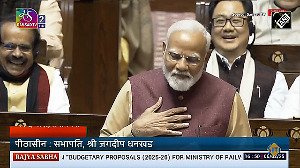Against a backdrop of spiralling conflict and political uncertainty, Iraq's footballers have brought a ray of light to the war-torn country.
The Iraq under-23 team have qualified for August's Athens Olympics, while the senior side have earned a spot at the Asian Cup in China, which kicks off in July.
The United States-led invasion of Iraq and its bloody aftermath may even have contributed to those successes, according to a senior FIFA development official.
"Maybe if the Iraqis were not facing these difficult obstacles, they would not have achieved all this success," Paul Mony told Reuters.
"The war gave them reason to try harder and also prompted help from countries like England, Germany, Italy, United States, as well as FIFA. This help would not have been forthcoming had they not been in trouble."
Iraq sealed their Olympic qualification with a 3-1 victory over Saudi Arabia last week, joining South Korea and Japan as Asian representatives in Athens.
Iraq's national team, coached by German Bernd Stange, clinched a berth in the 2004 Asian Cup earlier this year despite sharing a bumpy training pitch in Baghdad with grazing sheep.
All this has been achieved without a fully functioning national soccer association. Iraqi football is currently being overseen by a nine-man interim committee.
SPARRING PARTNERS
"These players weren't fighting the war," said Mony, who is development officer for FIFA's "Goal Project" in Kuala Lumpur. "They went abroad and trained. They got better sparring partners than other countries by playing against foreign teams."
Mony insisted that Iraqi soccer officials were not cash-strapped, even though all the funds belonging to the Iraq Football Association (IFA) had been frozen by the American administration governing Iraq since the ending of Saddam Hussein's regime.
"They had quite a lot of financial support from foreign well-wishers, including Asian countries. They also had help from FIFA's financial assistance plan," he said.
The team travelled to Britain this week for a goodwill tour featuring a friendly against Trinidad and Tobago and a match against a team of British politicians.
"We are looking for friends to help us, to give us support to rebuild Iraqi soccer, because we are the good message of Iraq," Stange said during the visit.
Captain Hussam Fawzi said in London that the team, once run by Saddam's feared son Uday, were glad to put the past behind them.
"(The past is) something that's horrible and a dark cloud over all the Iraqi players," Fawzi told a news conference on Tuesday.
"Athletes should not go through this -- they were tortured, they were imprisoned."
GOLDEN YEARS
Uday, who with his brother Qusay was killed in a battle with American soldiers in the northern Iraqi city of Mosul last July, ran the team, as well as the national Olympic Committee, and was known to physically punish underperforming players.
Iraq's golden footballing years were in the 1980s when they were a dominant force in Asian football, reaching the 1986 World Cup Finals in Mexico where they lost all three of their first-round games.
The 1990s saw a decline in Iraqi performance due to war, sanctions and the vicious whims of Uday.
Firm action from Iraqi officials and FIFA, which resisted U.S. pressure to prevent supporters of Saddam's toppled Baath party from standing for IFA elections, has aided the rejuvenation of the beautiful game in Iraq.
The U.S. administration had expressed concern about interim committee president Hussein Saeed, one of the driving forces behind Iraq's recent success.
Before the war, Saeed served as vice president of the IFA under Uday.
"Hussein Saeed is one of the most popular soccer personalities in Iraq. He did a lot of work after the war to make sure Iraq's top players continued to play in competitive matches," said Mony.
According to Mony, Saeed is favourite to become the new IFA president when a vote is held following the transfer of power to an Iraqi government, scheduled for June 30.








 © 2025
© 2025